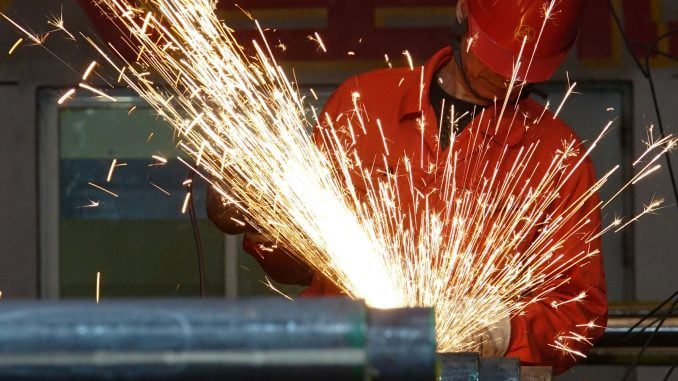
GOLDBORO – Seegars Fence Company has been based in Goldsboro, North Carolina since 1949. The company has benefitted from good fortune and lots of hard work over its nearly 70 years, and has grown to include 14 branches in North Carolina, South Carolina, and Virginia.
Of any business in North Carolina that will feel the effects of President Trump’s proposed new tariffs on imported metal, Seegars Fence is likely at the top of the list. The Goldsboro office functions as the material distribution hub for the regional partner branches, which allows for strong collective purchasing power.
A member of the third generation of Seegars Fence men, Ben Seegars oversees material purchases. Seegars says that with the new tariffs imposing a 25 percent increase on steel and 10 percent on aluminum, the new structure will simply set the pricing bar across the board. The main advantage Seegars points to is that for the domestic producer, the known tariff establishes a firm price ceiling and will allow companies to predictably raise prices in order to be as profitable as possible. “American Business 101,” says Ben Harper, Seegars Fence Marketing Manager.
Harper says that Seegars Fence Company sources their metal materials from three U.S. mills and has seen four price increases since the beginning of 2018, each ranging from 5 percent to 9 percent. The immediate impact of the tariffs, Harper says, has brought some uncertainty to the supply chain. “Rather than stocking the standard two-week supply of metal fence materials for the 14 branches, Ben is looking to max out the yard capacity and hold 3-4 weeks of materials in order to capture today’s lower prices to cover current signed contract work, like filling up your gas tank when you know gas prices are going up Friday.”
Market uncertainty brings new challenges to the flow of the job bid schedule. For example, if an elementary school begins the budget work for a new playground fence, Seegars Fence Company will have to be careful about how they quote a job six months out, or buying and storing the materials early might be required to stay on budget for the school system.
When prices have stabilized, and the metal markets build in the tariff over the long term, Harper estimates that residential customers might see an 8 percent total increase in the cost of putting in a metal fence. Seegars Fence also owns Southern Wildlife, a custom-built steel firepit and gate subsidiary. Southern Wildlife material costs will rise by 25 percent.
Higher prices will require that the company make a strong effort to connect with customers in a crowded space, says Harper. “These are the complications relative to sudden inflation. Seegars Fence Company strives to work through adversity, and Ben enjoys the new challenge of securing and delivering the best prices possible to customers as we move into the busy summer season.”
National trade groups have urged the White House to take the metal tariffs – which President Trump has said are specifically designed to target Chinese trade practices – off the negotiating table. The groups have called on Trump to work with trade allies to push for changes to China’s policies instead.
But back in North Carolina, Trump’s domestic policies have had an impact that could eclipse the current market uncertainty surrounding the new metal tariffs. Harper notes that policy changes effected since Trump took office have largely benefitted the family business: “Trump has also brought an upside to Seegars Fence Company and many other small businesses across the country. The new tax cuts positioned Seegars to increase their medical insurance contribution for employees, new equipment, and facilities.”



